Closing Out kyu House at Climate Week
What happened on kyu House Day 3.
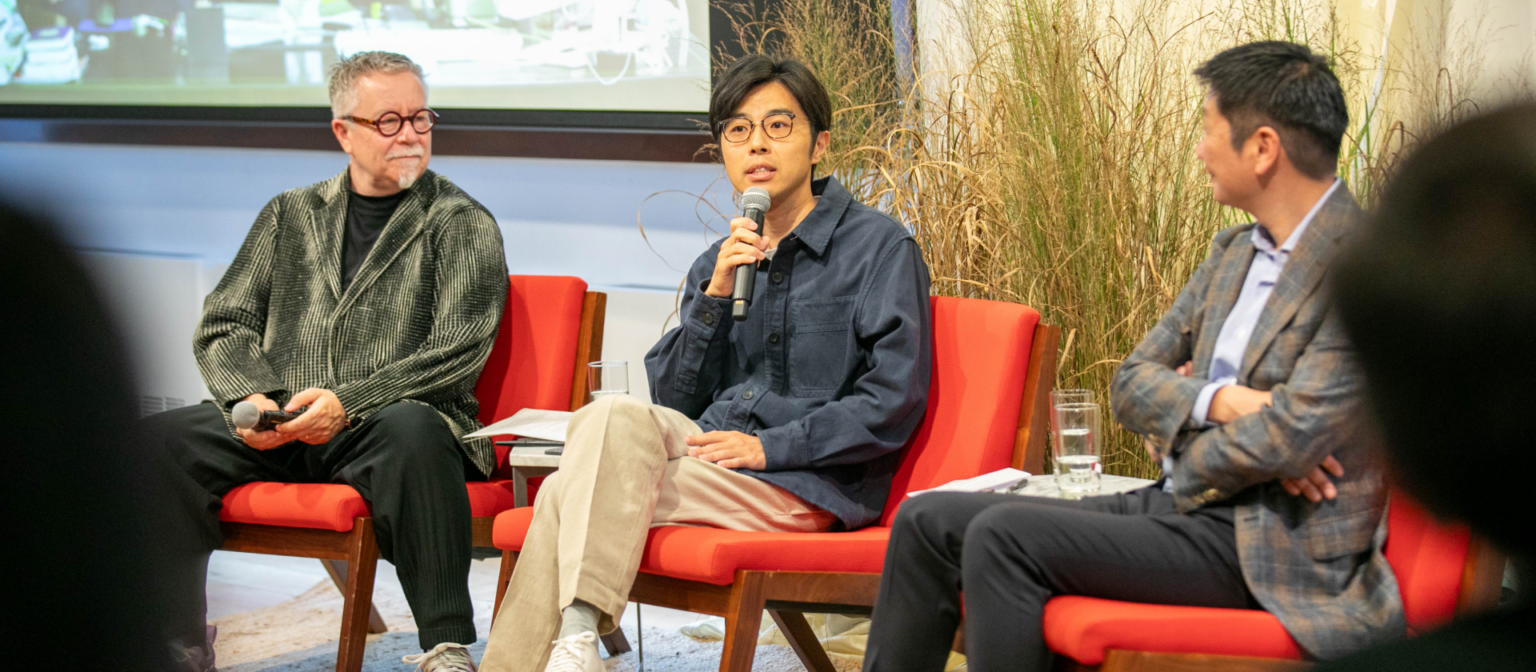
All week kyu House brimmed with ideas about the kinds of leadership and solutions needed to meet the urgency of the climate crisis. On its final day at Climate Week New York, kyu House sessions and workshops coalesced around the future of climate action, and what it could look like when we get things right.
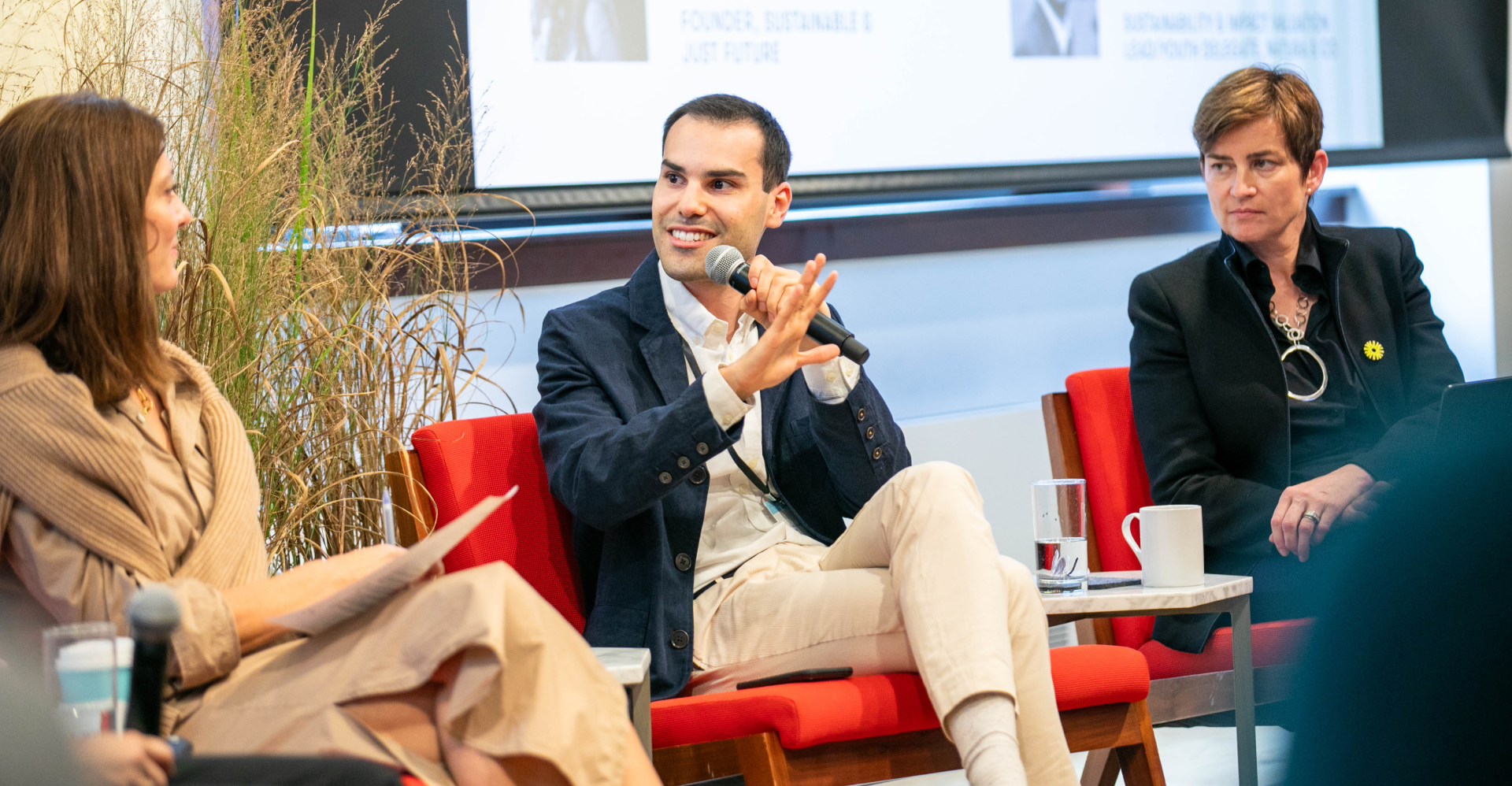
Session Recap
Shaping Organizations of the Future Through Next-Generation Leaders
The sentiment around this Climate Week was that people were, at last, talking about the unseen parts of the iceberg — and taking action towards the underlying systems that need to change. SYPartners’s session began with a provocation from its CEO, Jessica Orkin: “How can we unleash collective potential across generations to an intimate and diverse group of leaders?”
Alexandre da Rocha Leão, sustainability and impact valuation lead at Natura &Co, is an engineer by training. Next-generation leadership to him is addressing the climate crisis as a crisis of perspective. “We need to regain understanding the point of view of the other,” he said, “and of the planet itself.”
Sage Lenier, Founder of Sustainable & Just Future, noted that while the economy may have grown five times in the past 50 years, it’s been accompanied by a 98% degradation of the world’s ecosystems: “We take resources from Earth, we turn them into things, we ship them all around the world, we landfill them and then we start that process all over again.” Next-generation leadership must think beyond this. “What we really need is a vision for what it looks like to have the resources that we’ve already extracted stay circulating,” said Lenier.
Around-the-room introductions showcased a wealth of experience, from consumer goods to venture capital. Sophie Lambin, CEO and founder of Kite Insights, facilitated a discussion of what next-generation leadership looks like. Here’s some of what was said:
- As we think about what next-generation leadership looks like conceptually and philosophically, we need to build skills that allow us to hear across generations, geographies, continents and histories.
- Senior leadership has a responsibility to listen to cross sections of the company and make decisions with a diversity of voices in mind.
- If the current economic frameworks built on the exploitation of the Global South are failing, climate action must look to the Global South for leadership.
Session Recap
Urban Design, Climate Destiny
In the session, “Urban Design, Climate Destiny,” Gehl head of climate action Blaine Merker, and Rushad Nanavatty, of Third Derivative and the Rocky Mountain Institute (RMI), offered a vision of the future that wasn’t just an intellectual exercise.
“The energy transition,” Nanavatty said, “is not just about taking really bad widgets and replacing them with better widgets.” Rather, cities are the form factor of the transition. Research shows that some of the most effective climate action decisions made by local governments include constructing the right kinds of buildings in low-emission locations.
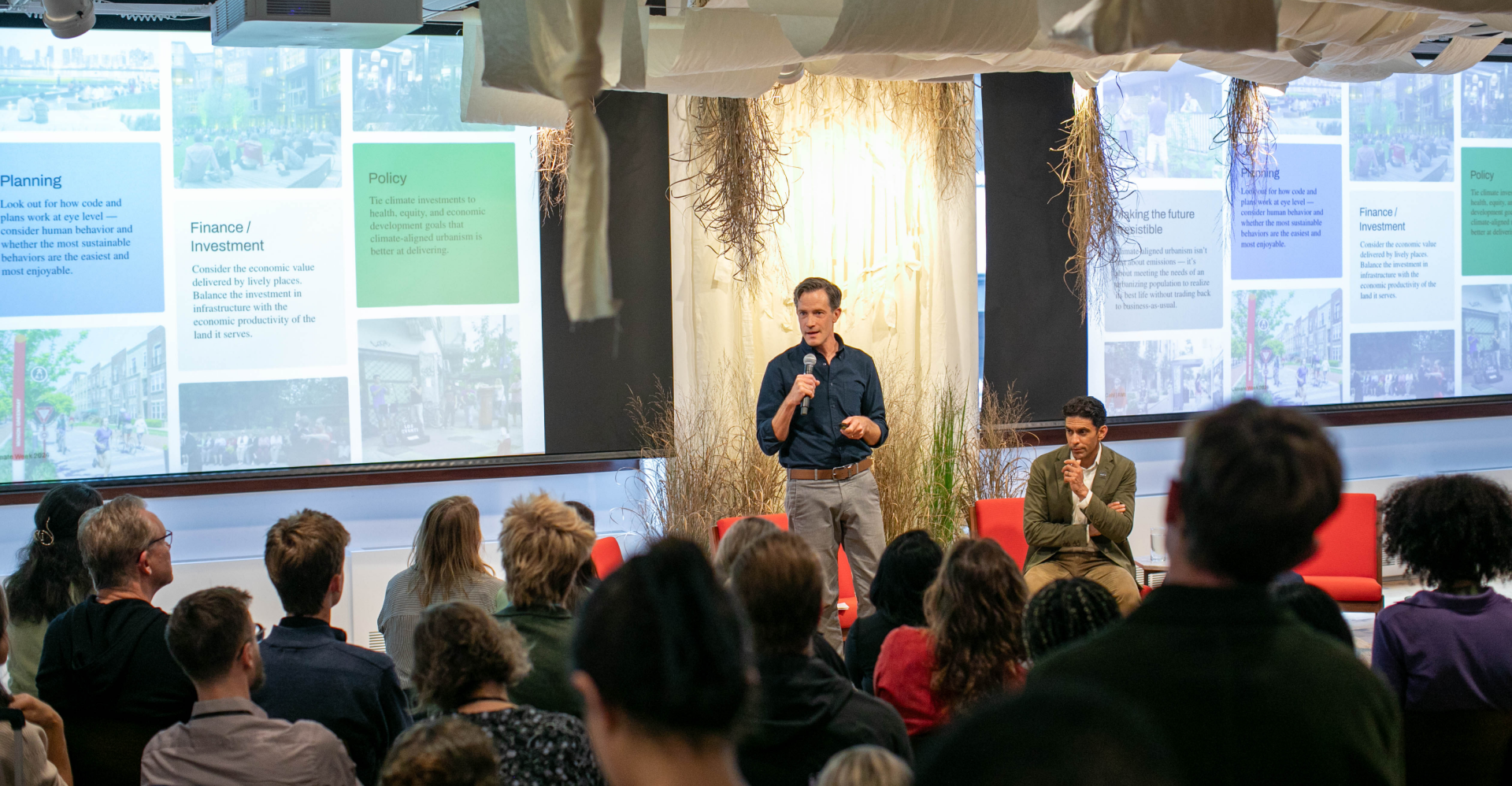
“Look out for how the city is built at the eye-level. Think about human behavior,” said Merker. “Is it landing for people in a way that helps them live their lives?” Tempe, Arizona; Shanghai, China; and Carmel, Indiana are examples of how pivoting investment away from dispersion is an investment in human connection.
A panel hosted by RMI senior associate Yuki Numata, included Majora Carter, CEO of the Majora Carter Group, who asked us to consider who benefits from good design. “The real elephant in the room,” she noted, “is that lower-status communities in those cities are often not even given a second thought.”
Felipe Ramírez Buitrago, urban mobility director at the WRI Ross Center for Sustainable Cities led Bogotá, Colombia through a tremendous change as its Secretary of Mobility. He thinks the transformation of infrastructure is an opportunity to address other social issues; electrification of the Bogotá bus system created a 100% woman-driven public operator system.
Robin Chase asked that we consider what we’ve given up to our cars: our freedom of movement and free movement.
Session Recap
Is Climate Action Job Creation?
The evening continued with a vigorous debate presented by LinkedIn as to whether climate action is job creation.
On the For side, Kwolanne Felix of Black Girl Environmentalist pondered what to her was the essential question, “Will humanity move or will we be moved?” Caterina Sarfatti, managing director of Inclusion and Global Leadership at C40 Cities, made the case that since the fossil fuel economy is no longer the driver of human progress, climate represents a huge opportunity.
There are 24 million jobs that will be created in the energy transition, 9 million new in the U.S. alone. Switchboard founder Patrick Flynn posited that when everyone brings their unique skills to creating a new sustainable economy, every job will be a climate job: “We will see that climate action is job creation.”
But the Against side presented an original argument that ultimately won the crowd.
Frontier Markets Founder & CEO Ajaita Shah made the case that conversations center around job creation in the West, leaving out the 7 billion people in the Global South who need the opportunity to be seen and heard differently. “We do that through entrepreneurship. We do that through livelihoods,” said Shah. “We do that through a very different lens of looking at where the masses who, frankly speaking, are at the center of climate justice, they’re at the center of the changes.”
“Talking about job creation can actually be a red herring,” argued Elemental Excelerator CEO Dawn Lippert. It distracts us from the idea that ownership is at the heart of the true transformation and change necessary for climate action.
Similarly, David Carlin of D. A. Carlin and Company implored the audience to think about ecosystems theory: “We can’t solve climate without nature. That’s why we can’t solve the challenges of biodiversity loss without considering pollution; that’s why we can’t solve climate action without thinking about underlying inequalities and without thinking about the system that got us here,” he said.
While the argument presented by the Against side was more persuasive, everyone agreed it wasn’t a zero-sum game. Entrepreneurship is a vital part of job creation. In a way, everyone won this deeply thoughtful debate.
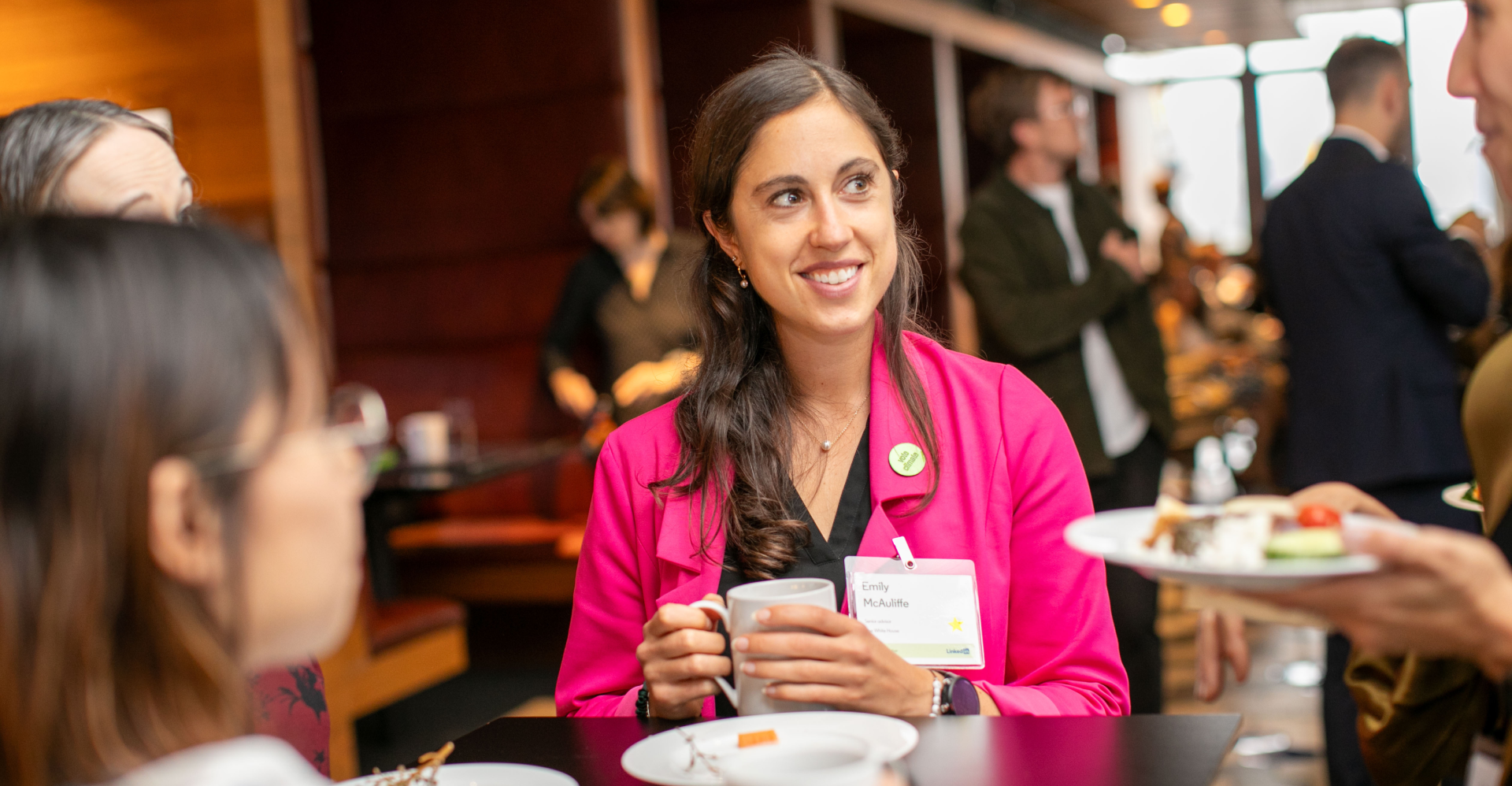
Session Recap
The Ultimate Investment Story
kyu House at Climate Week NYC concluded with a compelling vision of the future through “The Ultimate Investment Story,” hosted by ALN Kenya partner Wangui Kaniaru and centering on African entrepreneurship.
Ciirũ Wawerũ Waithaka, CEO of Anjiru, is a designer by training. With her decades of entrepreneurship she sees a significant mindset shift holding back sustainable development.
“How do we bridge the tyranny of low expectation?” she asked. Banning the word “potential” and thinking about the “promise” is a piece of the puzzle, as is bringing in partnerships with specific expertise.
“We are not just creating jobs, but also need to create wealth,” said Maryanne Ochola, managing director of Endeavor Kenya. She asked the venture capital ecosystem to do more, citing research that in 2023 Africa received just 1% of venture capital worldwide. “That tells me you don’t believe that Africa is a scale-up continent,” she said. “The challenge that I want to pose to all of us today is to see entrepreneurs all the way through: They’re not just a ‘feel good’ story, they’re a scale-up story.”
Highlights From Wednesday
ENND PARTNERS leaders Tim Brown and Masanobu Iwabuchi were joined by Marukome’s Shuta Aoki to explore Japanese business lessons — and how they can help in today’s climate fight. They talked about existing in the space between the past and future, the concept of mottainai (a sense of regret concerning waste), and how to balance long and short-term thinking. The session finished with a tasting of the Marukome Aosa seaweed miso soup referenced in the engaging session.
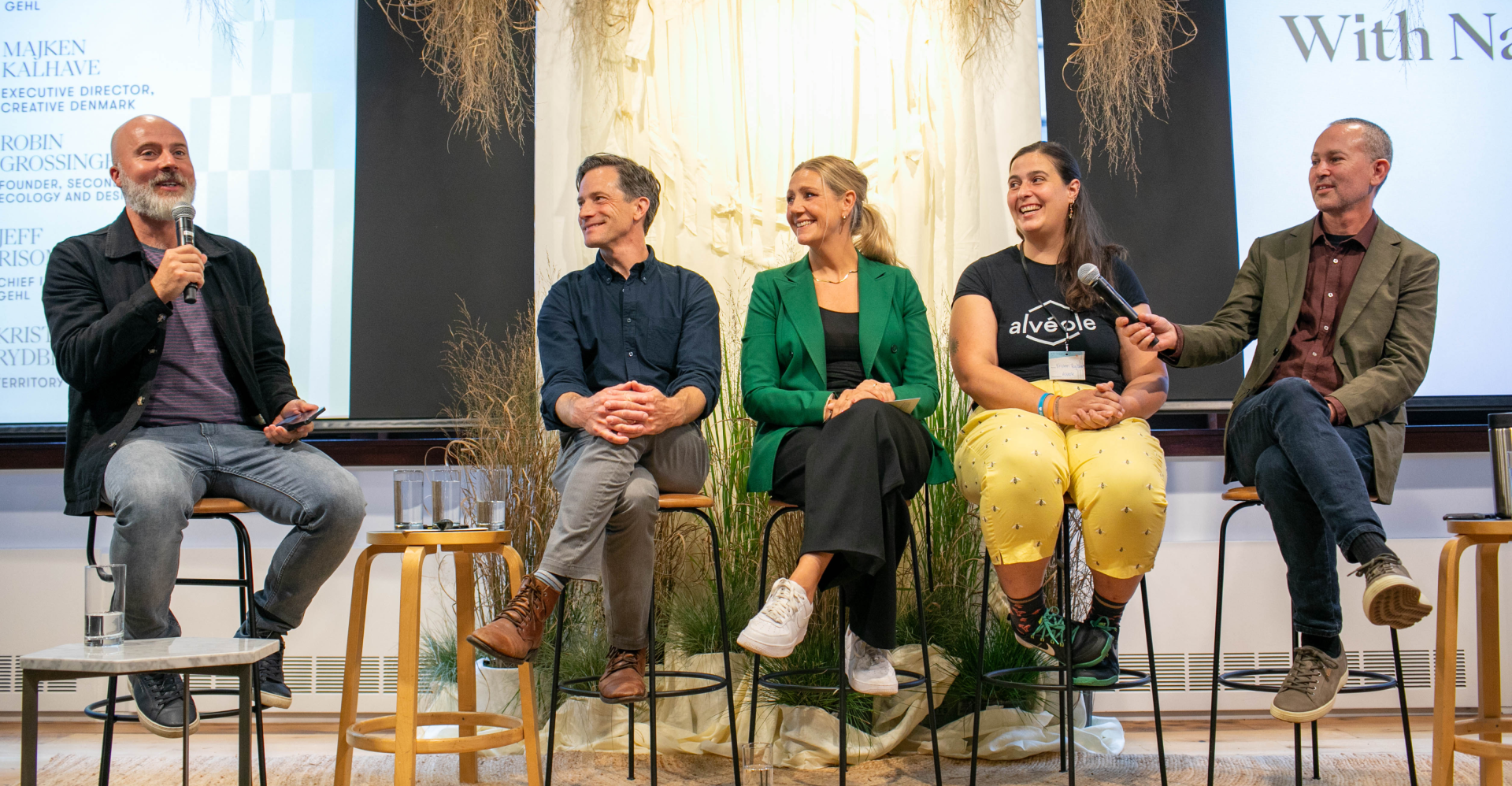
What happens when we bring more nature and biodiversity into our everyday lives? Gehl’s second kyu House session explored how we can increase productivity, creativity, and well-being by transforming urban spaces.
Gehl CIO Jeff Risom chatted with experts doing just that: urban ecologist Robin Grossinger, who talked about translating native habitats into an urban context at Google’s new St John’s Terminal building, Creative Denmark’s Majken Kalhave, Kristen Rydberg (of the urban beekeeping company Alvéole), and Blaine Merker, who expanded on Gehl’s shift to thinking about cities for people and planet.
